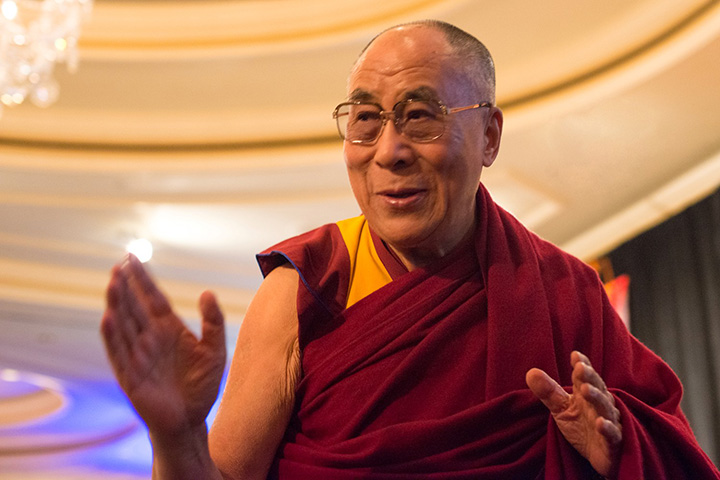The Dalai Lama believes schools should do more to promote moral education to move the world away from the “violent” and “sad” reality of the 2oth century.


The Dalai Lama believes schools should do more to promote moral education to move the world away from the “violent” and “sad” reality of the 2oth century.
“I think existing modern education is inadequate and it teaches more about materialistic pleasure and values. So when we grow up with modern education we go after power, money, and fame. Education should include moral education as an academic subject,” the Buddhist spiritual leader told more than 27,000 at the Kalinga Institute of Social Sciences in India, where he received the 10th KISS Humanitarian Award last month.
The international award, selected by a “high-level jury,” is designed to highlight people who make exceptional contributions in fields that tackle social issues.
The Dalai Lama said the last century was plagued with destruction, war, and mass killings, including deaths from the use of two nuclear weapons. The Nobel Peace Prize winner believes that by cultivating inner peace through moral education is the key to helping today’s youth reverse the trend and create a more peaceful planet in the 21st century.
“In this century . . . killing has become almost normal. This must change,” he said, according to The Times of India. “This century should be a century of peace. World peace can be achieved only through inner peace.”
The Dalai Lama’s invitation to make moral education central to education is worth heeding. Already, schools around the world are struggling to define moral education and how to integrate it into the curriculum.
Yet University of Virginia sociologist James Davison Hunter points out that curriculum is just one piece of a larger moral culture that extends beyond schools and into all aspects of human life.
“This moral culture not only gives us our ethical understanding, it also tells us who we are,” Hunter wrote in The Tragedy of Moral Education in America. “It provides us with an understanding of what it means to be human and what kind of human we should ideally be.”
A moral culture can make this explicit in classes, but it can also be woven into the ethos of a school, as it is in the Great Hearts Academies network of schools in the United States. Rather than making moral education an academic subject to give students a moral compass, this network of classical charter schools relies on its robust academic curriculum to weave moral formation into all of its instruction.
Cassie Mason, a teacher at Great Hearts, reflects, “What amazes me is that they [the students] really see the virtues that we talk about as something beautiful and something to strive for.”
Educators can learn more about Great Hearts’ approach to forming character with its Building Goodness by Building Character video.
“I think character and virtue are really the center of everything we do, because we are called Great Hearts, after all, not great minds,” said student Jack Fresqez. “And we’re encouraged to kind of question our actions, question everything we do, around whether it’s virtuous.”
“It’s not just about producing brilliant kids, but brilliant kids who have the character to deploy that talent for a good that’s greater than themselves,” said Great Hearts founder Daniel Scoggin.